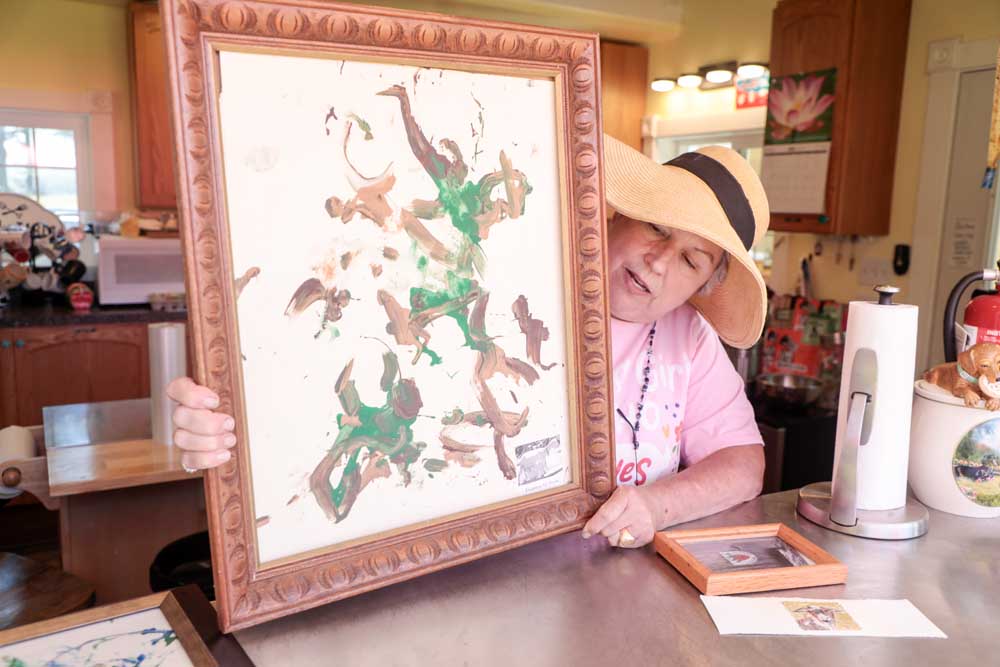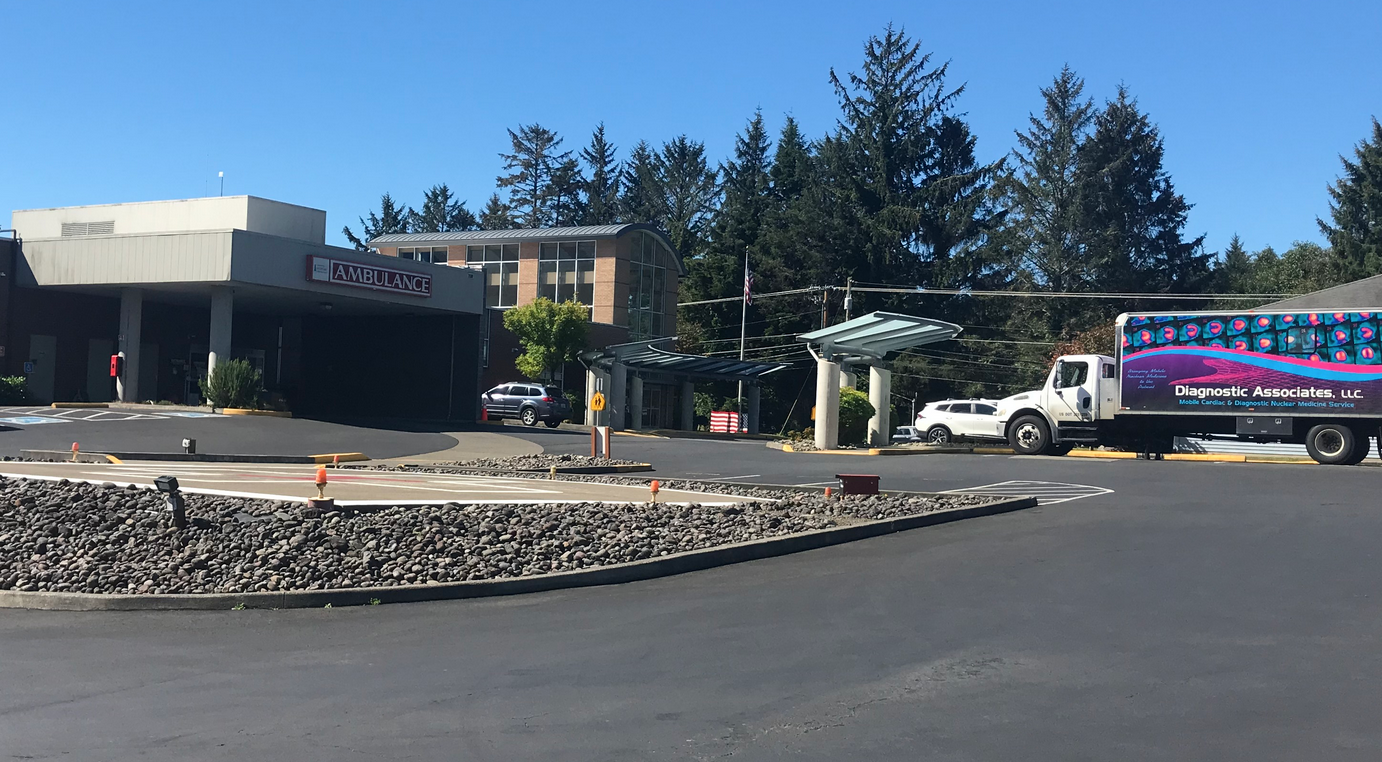Bringing back the bees: ‘Farmer Deb’ Howard helps Willapa Bay Heritage Farm sprout through organic, sustainable methods
Published 2:00 pm Tuesday, June 25, 2024

- _B0A1658.jpg
LONG BEACH — As farms become fewer and interest from new generations wanes, one blossoming farm along Willapa Bay is reversing the national trend while harnessing technology and embracing sustainable, eco-friendly methods along the way.
Trending
“Constantly evolving” could sum up the robust change that has occurred since Deb Howard — affectionately known as “Farmer Deb” — first started Willapa Bay Heritage Farm around seven years ago on Sandridge Road north of Long Beach.
If you go
Willapa Bay Heritage Farm
Deb Howard, owner
Trending
15720 Sandridge Road, Long Beach
willapabayheritagefarm.com
Where to buy: The farm operates a kiosk selling fresh produce, plants, organic eggs and goat-milk products at the farm, located at 15720 Sandridge Road, Long Beach
Since 2017, Howard has been embracing eco-friendly methods on her nine-acre sustainable organic farm nestled between Sandridge Road and Willapa Bay.
Today the “hobby demonstration farm” specializes in producing sustainably grown fruits, fresh vegetables, organic eggs and goat-milk products while fostering the farm experiences for the roughly dozen staff that care for hundreds of animals that include chickens, goats, pigs, rabbits and geese.
Focus on organic, sustainable farming
The farm grows produce on raised beds three feet off the ground, naturally helping prevent pests, while growing dozens of different varieties of produce along with apple, pear, peach and cherry trees.
Specific manures from chickens, horses, goats, rabbits — including vegetarian and seafood scraps from local businesses — help fertilize and amend the soil without the use of pesticides or herbicides. Composted scraps, including coffee grounds and fish carcasses from local businesses, are added to further amend the soil, while a solar panel array powers the farm, aided by reflective oyster shells. Each facet of the farm is made in consideration of the local ecosystem and environment, which resulted in the farm being named among the top 10 sustainable farms in America by Agribusiness Review in 2023.
“We’re very proud of that,” Howard said during a tour of the farm on Sunday, June 23.
The farm was named among the top 10 sustainable farms in America by Agribusiness Review in 2023
“Sustainability is important because this used to be a conventional nursery, using pesticides and herbicides and other things like that. We wanted to convert it over over to natural and all-organic by taking off the all the pesticides, making sure all the bees, frogs and wildflowers come back. We have a beehive now and we’re getting the native bees back. It’s been a gradual process to get things back to a more natural state. It’s been very gratifying to hear the frogs at night and see the wildflowers we have now.”
Solar energy provides power to the main house and the green house.
“We have a solar array that has 21.5 kilowatts of power, then we added a bed of oyster shells underneath because it is bifacial and reflective. It increased the output to 24.5 kilowatts. That’s just one example of a long-term project we’re doing to try to be more sustainable.”
Demonstration farm
The farm, self-described as a “hobby farm demonstration project,” was founded on the site of the former Clarke Rhododendron Nursery and has undergone a transformation from its former roots.
“We added added all the barns, farm kitchen, paved roads and landscaping — everything has been put in,” Howard said, adding that it became a limited liability corporation, or LLC, in 2019.
Pacific County had 290 farms operating in 2022, according to figures from the latest agricultural census, down from 346 in 2017.
The farm offers programs for students in partnership with 4-H and Future Farmers of America (FFA), “with an intent to become a venue for nonprofit fundraisers with our ultimate goal being able to grant the farm to the community in perpetuity.” Current Ilwaco students participating in the program include 2025 seniors Dom Valoze, Caleb Brundage and Josh Dennis. Former Ilwaco graduate Anessa Woodby, from the class of 2017, serves as the farm manager and special project coordinator.
“The ultimate goal with the farm is to donate it to the community when I’m gone,” Howard said.
“I have a farm foundation, we’re very close to getting our [federal nonprofit status] 501c3, hopefully in the next month or so. We will have a board run it when I’m gone. The goal is to keep it being a demonstrative, learning environment for everybody.”
Farming family roots
As a child, an experience growing cactus inspired Deb’s love for gardening.
“I’ve always been a gardener, since I was six years old. In the last 10 years I decided I wanted to have a demonstration farm, where I could teach kids and adults. Even if they don’t become a farmer, it’s just nice to know where your food is from,” Howard said.
“Our family line of farmers has basically gone every other generation. It seems like one generation is on the farm, then the next can’t wait to get off it. My grandparents were the farming generation, they had a wheat farm in the Yakima area. My maternal grandfather was a wheat farmer in Kyiv [in Ukraine], then I had potato farmers on my dad’s side. A lot of people think the potato famine was only in Ireland, but no, they came over in the 1850s from Sweden, who had a potato famine there.”
As for words of wisdom, Howard insists on one simple rule: always wear gloves when working on the farm.
“Two years ago I almost died. I got a goat’s head thistle in my middle finger on my right hand. I spent a week on IV antibiotics, so we have a requirement now that you must wear gloves if you touch anything in our barn.”
Goat milk
The farm anticipates becoming a certified goat milk producer and processor in the coming months. The farm has about 30 goats, including Nubian and Nigerian dwarf varieties.
“We’re in the process of getting certified as a goat milk producer and processor, which we’re hoping to get done in the next two months. We’ve been working on it for two years,” Howard said.
Among the necessary upgrades is a state-certified pasteurizer, with tamper-proof temperature sensing and recording.
“Our pasteurizer (about $750) has been fine for our own internal use, but the one that the state certifies is about $6,000,” Deb said. “It’s being built specially custom for us and should be here within a month, [and] hopefully a month after that we’ll have our state visit and have our milkers be certified. It’s a pretty intense process.”
The goats are typically milked twice daily, sometimes more, including some goats capable of producing up to 72 ounces per day — more than half a gallon.
“Which is pretty good for a mini Nubian,” Deb said referring to Susannah, one of her “champion milkers.”
“If we get at least eight ounces we’ll keep milking them, but usually we get 16-32 ounces each milking. The champion milkers are 48-72 ounces per milking.”
Volunteer programs
Volunteer programs such as WWOOF (World Wide Opportunities on Organic Farms) and Harvest Hosts have helped provide the farm with a labor force while offering a unique farm experience to people from around the world. Howard estimated around 5,000 people have visited the farm and about 500 have participated in the Harvest Host program so far.
“We have volunteers come to the farm and they work 4-5 hours daily with plants and animals, get meals and a place to stay,” she said. “Our Harvest Host is agro-tourism. People come through that program and they get to have a farm experience, like today I did some milking demos. It’s been wonderful, Harvest Host has really been a benefit to the farm for people all around the world.
“We’ve had people from 42 states and 10 different countries, including people who bring an RV over from their home country, like Belgium, then they sell it in either Canada or Mexico when they’re done with their trip. We’ve had diplomats, doctors, lawyers, teachers, nurses, etc.”









